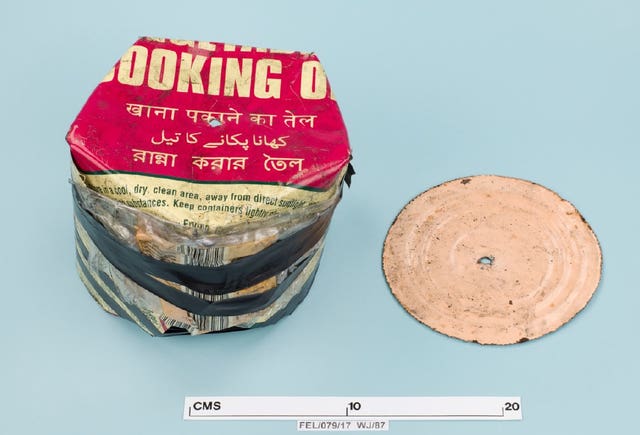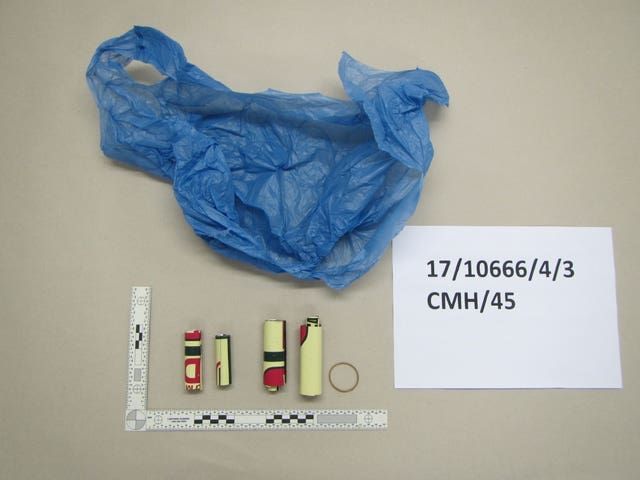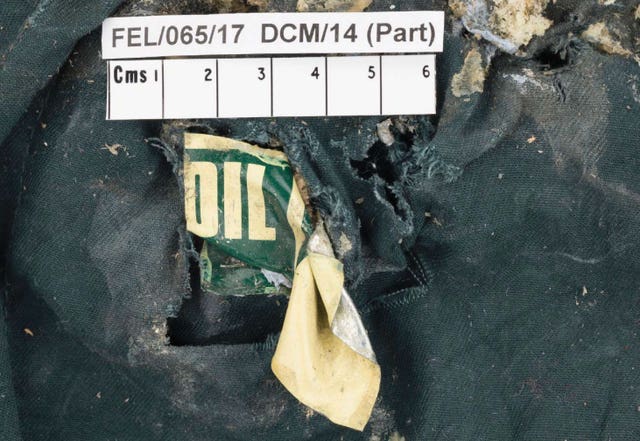
A piece of metal found at the scene of the Manchester Arena bombing was linked to a vegetable oil tin with the alleged plotter’s fingerprints on it, a court has heard.
Hashem Abedi, 22, is on trial at the Old Bailey accused of helping his older brother Salman Abedi collect materials for a homemade bomb.
On May 22 2017, Salman, then 22, detonated the device, killing 22 innocent people and injuring hundreds more as they left an Ariana Grande concert.
Afterwards, police found various crushed up metal tins in the garden of the Abedi family home in Elsmore Road, Manchester, with prints from both brothers on them, the court heard.

A hexagonal piece of a Consumer’s Pride cooking oil tin was found to have 10 finger and palm prints belonging to Hashem on it, jurors heard.
Six parts of the same tin were recovered from an address in Granby Row where Salman allegedly assembled the bomb.
Fingerprint expert Philip Balduini told jurors he had identified four of Hashem’s prints on the scraps, which had been rolled up and left in a blue plastic bag.

Jurors were shown an image piecing the whole tin back together like a jigsaw puzzle, including a single scrap recovered from the scene of the bombing.
The court has previously heard how Hashem had hoarded assorted metal cans in his garden, taken from a takeaway restaurant where he worked.
While none was found in the construction of the bomb, it was alleged the piece from the cut up Consumer’s Pride tin was in Salman’s rucksack.

Mr Balduini said he was provided with Hashem’s fingerprints after he was brought back to the UK from Libya in July 2019.
Salman’s body parts were identified from DNA and left-hand fingerprints taken by police in 2012 when he was arrested on suspicion of shoplifting.
Mr Balduini explained that the right-hand prints were taken during an examination of Salman’s body parts in the mortuary.
They had not been collected at the time of the 2012 arrest as he had suffered an injury and was in plaster at the time, jurors were told.
Hashem Abedi, who was in Libya at the time of the bombing, denies 22 counts of murder, attempted murder and conspiring with his brother to cause explosions.


Comments: Our rules
We want our comments to be a lively and valuable part of our community - a place where readers can debate and engage with the most important local issues. The ability to comment on our stories is a privilege, not a right, however, and that privilege may be withdrawn if it is abused or misused.
Please report any comments that break our rules.
Read the rules hereComments are closed on this article